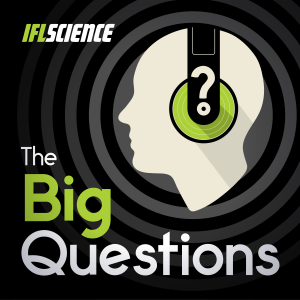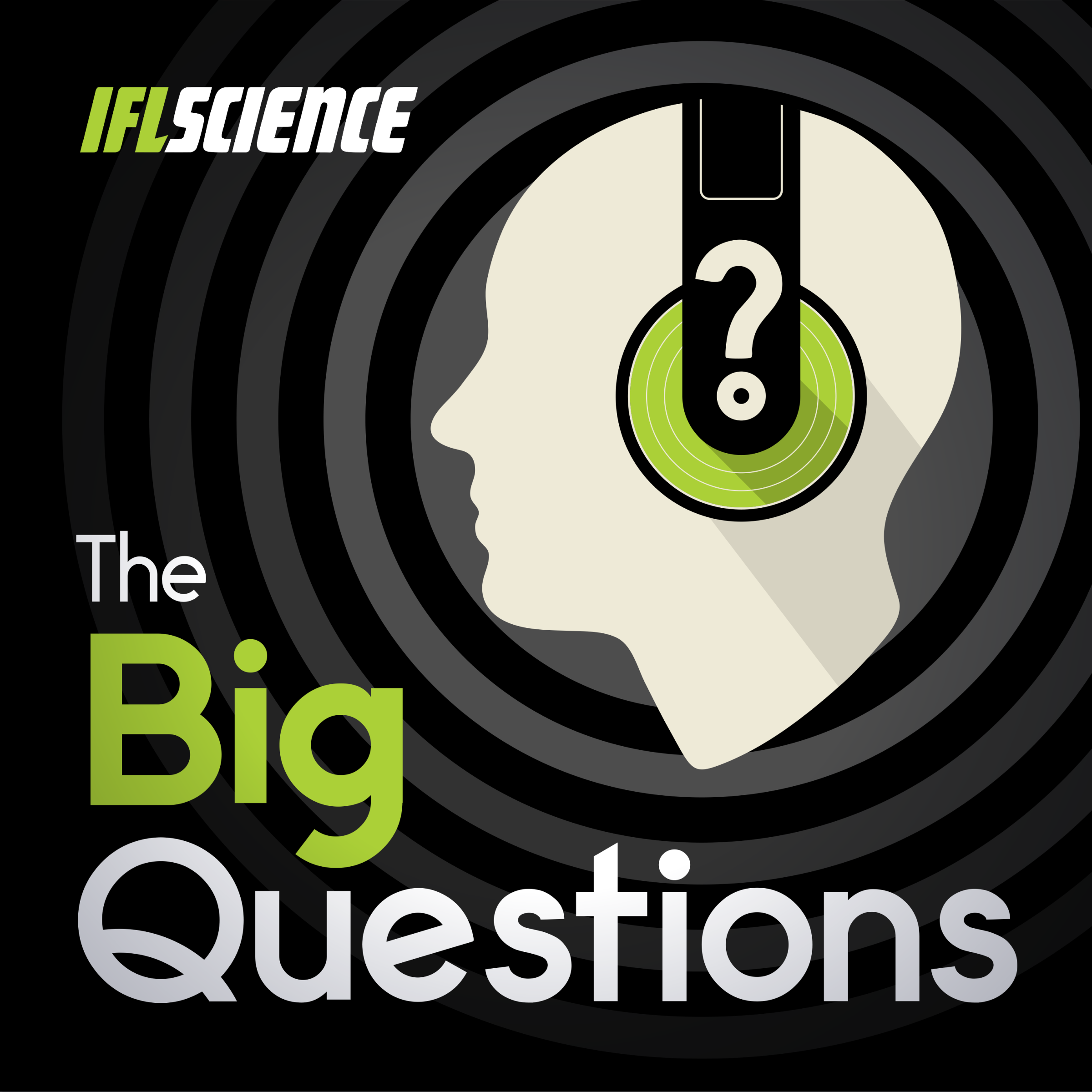Episodes

Tuesday Dec 23, 2025
Can Magic Be Used As A Tool In Science?
Tuesday Dec 23, 2025
Tuesday Dec 23, 2025
What is magic? Rabbits out of hats? Card tricks? Someone in a sparkly outfit getting sawn in half? Well, yes, but it’s also about defying expectations.
To psychologist and magician Dr Gustav Kuhn, founder of the UK’s only MAGIC Lab, it’s about causing you to question what you think to be real. Having practiced magic from a young age, he embarked on a psychology degree to try and get a better understanding of what made a good trick, or a good performance.
Thing is, he realized along the way that a lot of the big questions in psychology are addressed by key concepts in magic. Sleight of hand, card forces, and misdirection – it all challenges our attention and exploits our weak spots, making us believe what we see, and see what they want us to.
In this holiday bonus episode, join us as we explore the many ways in which magic is being used as a tool for science, encompassing some of the biggest challenges of our time, from cybercrime to misinformation.

Friday Oct 31, 2025
Searching For Nessie: IFLScience Takes On Cryptozoology
Friday Oct 31, 2025
Friday Oct 31, 2025
In this bonus Halloween special episode of The Big Questions, IFLScience takes on the “mystery” of the Loch Ness Monster.
Although it’s been nearly 100 years since Nessie was first brought to international attention, no one has provided any unambiguous proof of its existence, and yet every year, thousands of people flock to Scotland in hopes of seeing it. To find out what’s going on, we dispatched our IFLScience Investigates team – a motley bunch of intrepid sleuths – to dig into the story’s origins, question local monster hunters, and explore the science that has taken place in the loch’s murky depths.
Join Russell Moul, Eleanor Higgs, and Katy Evans as they discuss searching for everyone’s favorite cryptid and what it was like to film IFLScience's first feature-length documentary on location, exploring this weird case. Did we find Nessie? You’ll have to listen to find out.

Thursday Oct 23, 2025
Why Do People Believe In The Paranormal?
Thursday Oct 23, 2025
Thursday Oct 23, 2025
Everyone loves a good ghost story. Whether you’re a skeptic or a believer, there’s something about the eerie and the uncanny that we all enjoy. But for many people, the things that go bump in the night are not just the stuff of stories; they’re real. In fact, countless numbers of people across the world have their own stories of the strange, whether they’re ghosts, aliens, or any other spook. How do we explain that?
Join host Dr Russell Moul as we discuss the psychology underpinning paranormal experiences with Chris French, Emeritus Professor of Anomalistic Psychology at Goldsmiths, University of London. We explore everything from ghosts and psychic experiences, to alien abductions and Satanic cults, and ask the big question: Is there really something strange going on, or is it all in our heads?

Thursday Oct 09, 2025
What Is Time And How Do We Measure It?
Thursday Oct 09, 2025
Thursday Oct 09, 2025
Time is everything to us: in terms of physical laws, in how we experience the world, and how society works. Still, its true nature remains beyond us. As scientists search for a deeper understanding, the way humans relate to time has changed massively.
To explore the questions of what time is and how we measure it, host Dr Alfredo Carpineti is joined by Dr Emily Akkermans, Curator of Time at the Royal Observatory Greenwich, which is celebrating its 350th anniversary this year.

Thursday Sep 25, 2025
Is De-extinction Really Possible?
Thursday Sep 25, 2025
Thursday Sep 25, 2025
De-extinction. It’s not a word many of us were thinking about just a decade ago, but it’s one that we’re getting ever more familiar with. The de-extinction company Colossal Biosciences has set its sights on de-extincting 5 key species whose extinction is thought to have either been caused, or heavily contributed to, by humans: the woolly mammoth, thylacine, dodo, moa, and dire wolf.
By their definition of “functional de-extinction,” they’ve already brought back the dire wolf, and have set a goal to see a living, breathing mammoth by 2028, but what do they mean by de-extinction, and what can it realistically achieve?
In this episode of The Big Questions, writer Rachael Funnell goes on a deep dive into de-extinction, speaking with Colossal’s co-cofounder Ben Lamm, chief science officer Beth Shapiro, and chief animal officer Matt James. We also hear from historian Professor Sadiah Qureshi, author of Vanished: An Unnatural History Of Extinction, who raises some interesting questions we should all be asking ourselves as this curious new branch of science marches on – both in its efforts to bring back creatures from the past, and to prevent further extinctions in the future.

Thursday Sep 11, 2025
Are We In The Anthropocene?
Thursday Sep 11, 2025
Thursday Sep 11, 2025
In March 2024, geologists rejected the proposal that we are in a new geological era: the Anthropocene, a time dominated by human activity on the planet. And yet, the evidence of our impact on the Earth’s ecology and climate continues to mount up around us. So how could this decision make sense given everything going on in the world today?
To dig through the layers of confusion surrounding the Anthropocene, host Dr Russell Moul spoke to Professor Erle Ellis, from the Department of Geography and Environmental Systems at the University of Maryland, Baltimore County. He explains how the idea of the Anthropocene was created and how it has value outside of debates over geological time.

Thursday Aug 28, 2025
What Will The Fossils Of The Future Look Like?
Thursday Aug 28, 2025
Thursday Aug 28, 2025
Today’s rubbish may well be the fossils of tomorrow. Plastic bags, old pens, cheap clothing, or even chicken bones are all examples of possible “technofossils”, rapidly accumulating debris and detritus that may come to represent the story of humanity in the geological record long after we’re gone.
But it doesn’t have to be this way. Host Dr Russell Moul speaks to Professors Sarah Gabbott and Jan Zalasiewicz of the University of Leicester, authors of Discarded: How Technofossils Will be Our Ultimate Legacy, about the fascinating processes involved in turning our trash into fossils, but also how interest in these processes may help us change them.

Thursday Aug 14, 2025
Will We Ever Have A Universal Flu Vaccine?
Thursday Aug 14, 2025
Thursday Aug 14, 2025
Lining up for your seasonal flu shot is an annual ritual, but what if it didn't have to be this way? Wouldn't it be great if we could develop a universal vaccine that could protect us against all current and future virus strains? Host Laura Simmons speaks to Dr Florian Krammer, a professor in vaccinology at the Icahn School of Medicine at Mount Sinai, to find out just how far humanity has reached in our quest to finally conquer the flu with an all-purpose vaccine.

Thursday Jul 31, 2025
How Has The Internet Changed The Way We Use Language?
Thursday Jul 31, 2025
Thursday Jul 31, 2025
Language can evolve surprisingly quickly, and nothing has sped it up quite like the invention of the Internet. So, how does it affect how we communicate, not just on our devices but offline, IRL?
Join host Tom Hale, senior journalist at IFLScience, as he discusses this and more with Internet linguist Dr Gretchen McCulloch, where they explore the origins of internet acronyms, interpreting tone via emojis, memes in real life, and the universal need for ironic punctuation marks.

Thursday Jul 17, 2025
How Do Black Holes Shape The Universe?
Thursday Jul 17, 2025
Thursday Jul 17, 2025
Of all the celestial bodies, none induce awe and fear in equal measure quite like black holes. They are incredible astrophysical objects and there are plenty of reasons why they are so iconic. In their supermassive form in particular, they have influenced the formation and evolution of galaxies, and more.
Host Dr Alfredo Carpineti sat down with astrophysicist, science communicator, and author Dr Becky Smethurst, to ask: How do black holes shape the universe?

